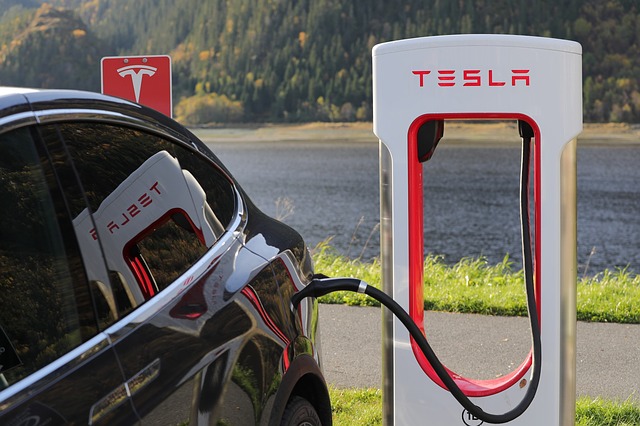
Tesla‘s (NASDAQ:TSLA) stock price tumbled 5 percent in early trading Tuesday, breaking below the key support level of $300 after soaring to $387.46 intraday on Aug. 7. That follows last week’s 6.5% decline. Shares remain under pressure as things, including the company’s cash position, production capacity or Twitter-induced drama effects are continuing to get less rosy for the electric car maker. In fact, this morning Goldman Sachs (NYSE:GS) analyst David Tamberrino predicted that competition will cut into Tesla’s share of the electric car market.
In a note to investors, the analyst said his firm sees “the medium-to-longer term industry backdrop as challenging for Tesla’s products…at a time when the company’s product cadence hits a gap.” Tamberrino also noted that the Palo Alto, Calif.-based company is facing “pressure to its lead in EVs [electric vehicles] as competition catches up.”
The analyst, who remains bearish on Tesla’s ability to ramp up vehicle production and generate free cash flow, put a “sell” rating on the name with a 6-month target of $210 a share — a 30% downside to Friday’s closing price of $301.66. At the close of trading Tuesday, Tesla stock printed $288.95 a share.
In his note Tamberrino did not weigh in on Musk’s now famous Aug. 7th going-private tweet. Instead, he focused on the significant number of electric cars being launched from large automakers — including BMW, Jaguar, Porsche and Nissan. Coincidentally, Mercedes-Benz on Tuesday joined the all-electric vehicle race by unveiling the EQC, its first entry into the EV global market which is estimated to grow to around $128 billion by 2022. The new model – expected to go on sale in the U.S. in 2020 – is a crossover SUV, offering all-wheel drive provided by a pair of electric motors which draw power from an 80-kWh lithium-ion battery (manufactured in-house). Later this month, Audi will debut its own electric SUV, the e-Tron, while BMW just began taking orders for its upcoming iX3 electric SUV. Needless to say, Musk will find himself in a world of increasingly fierce competition.
Another point on which Tamberrino focused on on his note was the looming end of federal tax subsidies for buyers of Tesla vehicles. For the last eight years, anyone buying a new Tesla model has been eligible to receive a $7,500 federal tax credit. This tax credit begins to phase out once a manufacturer has sold 200,000 qualifying vehicles in the US, which Tesla has surpassed. As a result, the rebate will drop to $3,750 in January 2019 and to $1,875 in July, then it goes away altogether.
“Tesla is losing the U.S. tax credit ahead of competition, posing further challenges to affordability at a time when competition is intensifying,” Tamberrino said.
Tesla Stock Action
Tesla’s stock, always volatile, was down more than 1% to $286.00 in Wednesday’s early session. The name, which currently trades at 97x forward 12-month EPS estimates, marking quite a premium compared to the S&P’s 43.6X, is down 15.8% year-over-year through Tuesday, underperforming the market-cap-weighted indeX which is up 17.7%.
At current price-per-share next support is at $289. Resistance is at the $300 area.
Reference: CNBC



Leave a Reply